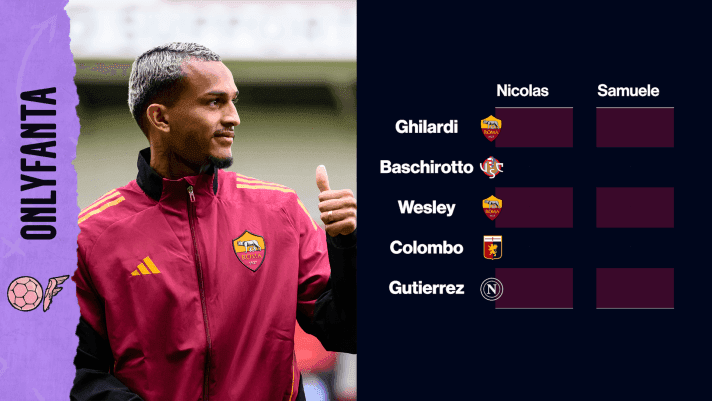Beyond the Goal Rush: Unlocking FPL's Evolved Blueprint for the New Season
Unlock FPL's evolved blueprint for 2025/26. We decode new rules, expert strategies, and hidden point streams to master squad building and early season dominance.

The Season's Strategic Shift: A New FPL Era Dawns
As the 2025/26 Premier League season looms, the familiar thrill of returns, but with a twist. The age-old challenge of assembling a formidable 15-player squad within a £100m budget remains, yet the landscape has fundamentally shifted. Gone are the days when managers could rely solely on the attacking prowess of titans like or to carry their teams, though their allure certainly persists. This season demands a more nuanced approach, a strategic recalibration that moves beyond the conventional. FPL experts, from and to and , are already deep in the trenches, dissecting formations and debating player selections, a testament to the heightened complexity. The initial weeks always hold a degree of uncertainty, with new signings bedding in and managerial philosophies taking shape. This year, however, that early-season fog is thicker, brimming with both peril and unprecedented opportunity for those willing to adapt their game from the very first whistle.

Unpacking the Rulebook: Defensive Gold and Double the Chips
The seismic shifts in FPL strategy for 2025/26 are undeniably rooted in the significant rule changes introduced this season. Foremost among these is the revolutionary concept of 'defensive contribution points.' Defenders who tally 10 clearances, blocks, interceptions, or tackles (CBIT) in a match will now bag an additional two FPL points – a potential goldmine for previously overlooked defensive stalwarts. Midfielders and forwards can also join this defensive party, needing 12 combined CBIT and ball recoveries (CBIRT) for the same bonus. This isn't just a minor tweak; it fundamentally alters how we value players across the pitch. Adding to this strategic depth, managers will now be granted two sets of every chip: two Triple Captains, two Free Hits, two Wildcards, and two Bench Boosts. This unprecedented chip allowance offers unparalleled tactical flexibility throughout the season, enabling managers to navigate difficult fixture runs or capitalise on prime opportunities with double the firepower. Beyond these major updates, subtle refinements to the assist rule, extra transfers during the , and revised bonus points criteria further underscore the need for a comprehensive understanding of the new FPL blueprint.

Mastering the Squad Build: Premium Power vs. Balanced Brilliance
With the rulebook laid bare, the perennial debate of squad construction takes on new dimensions. Do you chase 'Premium Power,' following 's lead of packing six high-value players to cover the league's best attacks, relying on their consistent 90-minute presence and set-piece duties? Or does the 'Balanced Brilliance' approach, exemplified by 's strategy of bypassing the most expensive duo to spread funds, now hold more sway? The introduction of defensive contribution points directly impacts this dilemma. Suddenly, a £4.5m defender or a £5.5m defensive midfielder, previously seen as merely bench fodder, could offer a reliable two points per game on top of potential clean sheets or attacking returns. This new scoring avenue might make the 'Salah and Haaland in the same team' dream, a £28.5m investment, feel less like a compromise and more like a calculated risk, as cheaper, defensively active enablers become genuinely viable FPL assets. The doubled chips also encourage different initial builds; perhaps a stronger 15-man squad from the off to maximise a Gameweek 1 Bench Boost, knowing another is in reserve for later in the campaign.

The Early Advantage: Navigating Uncertainty for Explosive Starts
Securing an early lead in FPL can be crucial for overall success, propelling managers up the rankings before the pack fully settles. While the initial weeks are always shrouded in a degree of uncertainty regarding team setups, new managerial tactics, and fresh signings, this season's rule changes present unique avenues to exploit this ambiguity. The historic reliability of players like and , both notorious for explosive Gameweek 1 performances, still offers a tempting foundation. However, the newly introduced defensive contribution points broaden the pool of early-season targets. Budget-friendly defenders and even certain midfielders, like 's who would have amassed 36 defensive points last season, now offer a safer, more predictable floor amidst the attacking unknowns. This added utility for cheaper defensive assets makes innovative team structures, such as a double-up on robust defensive players, not just affordable but potentially highly rewarding. Leveraging the first set of chips strategically in these uncertain early weeks, perhaps through an aggressive Bench Boost or a well-timed Triple Captain on a proven early-season performer, could provide an unassailable head start.

Evolving Your Game: The Adaptive Mindset for FPL Success
The 2025/26 FPL season isn't merely an incremental update; it's a fundamental re-imagining of the game. Success will no longer hinge on simply identifying prolific goal scorers and assist kings. Instead, an adaptive mindset, keenly attuned to the nuances of the new scoring system and chip allowances, will be paramount. Managers must now actively seek out those 'defensive gold' players who consistently hit their CBIT/CBIRT thresholds, transforming previously overlooked assets into valuable point-earners. The strategic deployment of two sets of chips throughout the season demands foresight and flexibility, allowing for aggressive plays and tactical pivots that were impossible before. This isn't about discarding old FPL wisdom entirely, but rather integrating the new rules into a more comprehensive, fluid strategy. Those who embrace the challenge, continuously monitor player performance under the revised criteria, and aren't afraid to deviate from established norms will be the ones to truly unlock FPL's evolved blueprint and climb to the top of their mini-leagues. The game has changed, and so too must the approach of every aspiring FPL champion.
Related Articles

The Genesis Code: Decoding FPL Success in the Unpredictable Opening Gameweeks

The Genesis Code: Decoding FPL Success in the Unpredictable Opening Gameweeks

Beyond the Lead: Petrolspor's November Crucible for Glory

Beyond the Lead: Petrolspor's November Crucible for Glory

Whispers from Como: Martin Baturina and the Art of Fantacalcio Gold Mining

Whispers from Como: Martin Baturina and the Art of Fantacalcio Gold Mining

Fortune's Favour: Decoding the Unpredictable DNA of the Chance Liga
